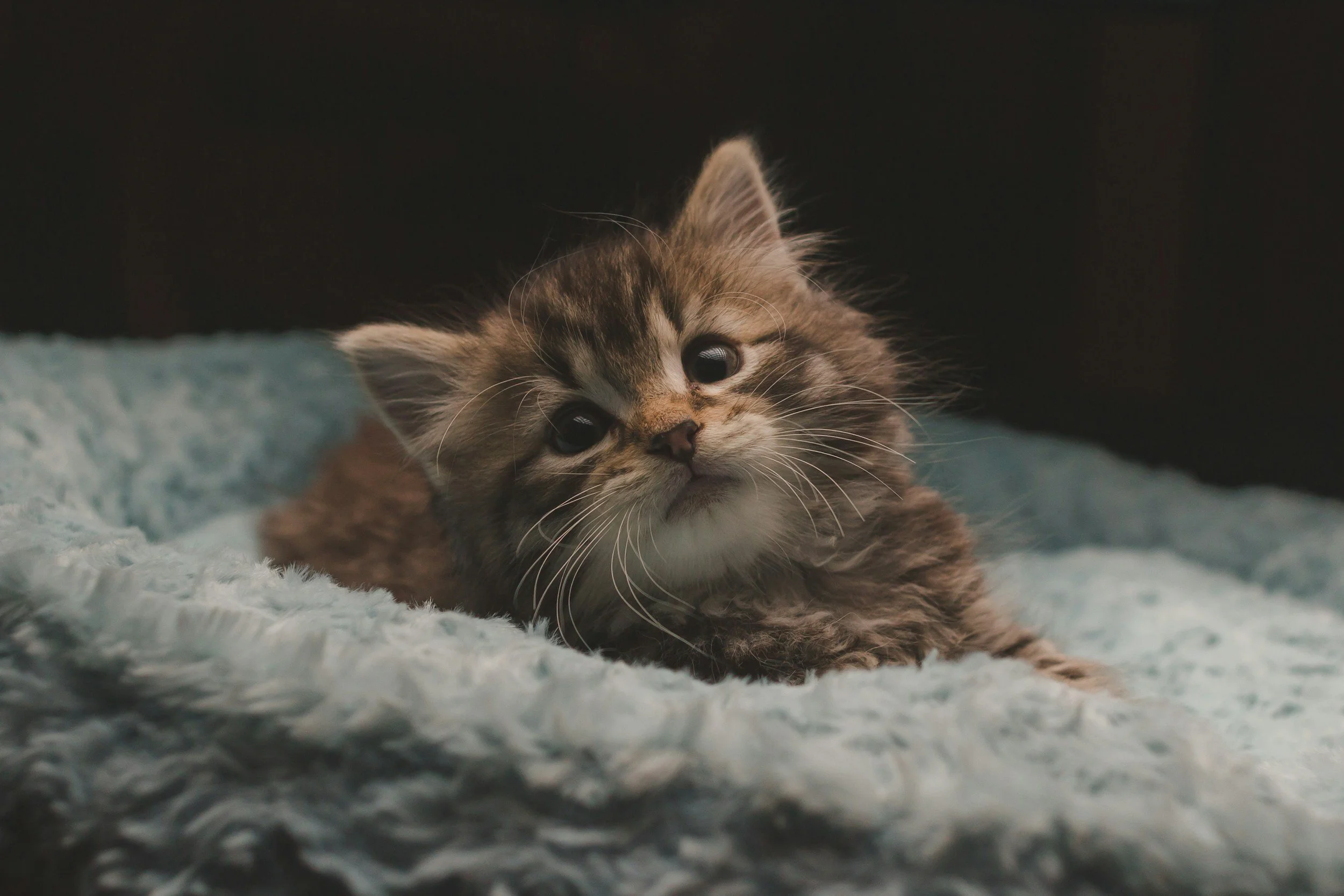Why the Sweetest Kittens May Be Most at Risk for FECV & FIP—And How You Can Protect Them
It always starts the same way. A tiny ball of fur, impossibly soft, melts into your arms with a trusting purr. You fall in love in seconds. Kittens have a magic about them—especially the friendliest ones. They nuzzle, explore, cuddle, charm everyone they meet.
But here's something most new pawrents don’t know: those sweet, outgoing kittens—the ones who rush to greet you, roll over for belly rubs, and never met a stranger—may also be the ones most at risk for a virus called **Feline Enteric Coronavirus (FECV)**.
It sounds scary, and yes, in rare cases, it can be. But don’t worry—there’s a lot you *can* do. Let’s talk about it.
What Is FECV—and Why Should You Care?
FECV is a common feline virus that spreads mainly through the litter box and contaminated surfaces. Many cats carry it silently with no symptoms at all. Some shed it for a few days… others, for life.
In rare cases—especially in kittens or immune-compromised cats—FECV mutates into **FIP (Feline Infectious Peritonitis)**, which can be fatal if untreated.
The heartbreaking part? It often happens just as kittens are settling into their new homes, still building their immunity, still adjusting to a world so much bigger than their nursery pen.
Why the Most Social Kittens Are More Susceptible
Friendly kittens are more likely to be touched, handled, and kissed by strangers—often with unwashed hands. They explore shared spaces, play with shared toys, and clean each other’s ears and paws.
It’s not their fault. They’re just being themselves. But in environments where even one cat is a chronic FECV carrier, this openness makes them more likely to come into contact with the virus.
Symptoms to Watch For
Most cats with FECV show little to nothing. Some may have:
* Mild diarrhea
* Occasional soft stools
* A dip in appetite
If the virus mutates into FIP, signs become more serious:
* Persistent fever
* Swollen belly from fluid (wet FIP)
* Weight loss, dull coat
* Eye or neurological changes (dry FIP)
Can It Be Prevented?
There’s no vaccine that reliably prevents FECV or FIP. Once exposed, a cat’s immunity is short-lived. Reinfection is common, and lifelong carriers may look completely healthy.
But prevention is possible—with you. Here’s how you can help:
* **Sanitize hands before touching** your kitten, especially after visiting other homes or shelters.
* **Limit who handles your kitten** in the early weeks. They’re not toys—they’re babies.
* **Keep the litter box spotless**, scooping daily and disinfecting weekly.
* **Minimize stress**—no sudden changes, loud environments, or too many pets at once.
* **Feed a high-quality diet** and consider immune-boosting supplements like beta-glucans and probiotics.
And if you already have cats at home? **Get them tested** before bringing in a new kitten. Even healthy adults can shed the virus silently.
What About Rescues and Moggies?
It’s important to know: rescue cats and strays are more likely to carry FECV due to crowded, stressful living conditions and inconsistent nutrition. This doesn’t make them “bad” pets—but it does mean you should be extra cautious when introducing them to a kitten.
At WinterForest, we test all our cats and litters regularly with fecal PCR to ensure we remain a **FECV-negative cattery**. Our breeding cats are only introduced after months of clear tests, and our environment is fully enclosed to prevent any external contamination.
But once your kitten leaves us, the outside world becomes their new environment—and you, their guardian.
We know how overwhelming it can feel to manage a disease you can’t see. That’s why we’re always here for our WinterForest families. If your kitten ever faces a health concern—even one as complex as FIP—you won’t be alone.
FECV doesn’t care if a kitten is purebred, rescued, expensive, or a stray. It can strike any cat. But the more we understand, the more we can prevent.
So hold your kitten close. Wash your hands. Learn all you can. And never forget: the sweetest souls often need the strongest shields.
Because love isn’t just cuddles and kisses—it’s protection too.

